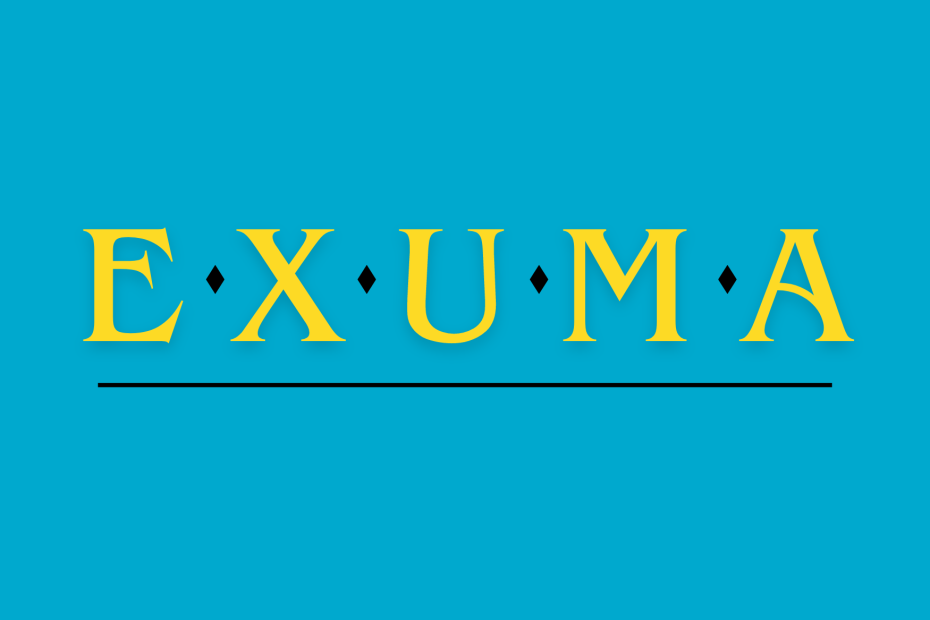With a personality that matches his flamboyant appearance, Exuma’s excentric work is an uncompromising image of African culture through the eyes of an Bahamian born descendant. His music however didn’t fit any of the pre-existing genres or marketing strategies and this in time would have a choking effect on his creative freedom as he ventured further and further from his roots in pursuit of commercial success. Apart from becoming a national hero in his native Bahamas, this path ultimately lead Exuma to be lost in obscurity for the rest of the world.
The dark and mysterious first album simply named Exuma (The Obeah Man) is now a well sought after collectors item fetching a hefty price. It captures the source of Exuma’s inspiration brilliantly and often sounds more like a field than a studio recording with its primal acoustic sound. It signals the beginning of an extraordinary journey in which island culture intertwines with folklore, mysticism, and ancient rituals loosely narrated by a free spirit. To me, this journey reaches its all-time high with his fourth album Snake. I feel it is with this album that Exuma is able to grasp the full extent of his creative power and is confident enough to include all that he is influenced by without going overboard. Just the cover alone is worth adding the album to your collection and is just like the albums that came before, hand painted by Exuma himself.
“Obeah, Obeah, O” invites you to the rhythmic drive that is perhaps the only universal constant for an album that seems to move freely in any direction. Featuring the horn section more prominently in comparison to Snake’s predecessor “Do Wah Nanny” doesn’t only put more emphasizes on the groove but also instills deeper meaning underlining the shrieks and shouts by Exuma. The album’s score “Snake“, can only hold back for so long before bursting into a frenetic groove that knows no equal. Witty lyrics are interchanged with call and response shouts like attending a Caribbean Baptist ceremony knee deep in water with sand between your toes. Moving into calmer waters, “Don’t Let Go” simple message to stay true to yourself is as humble as the Country Blues arrangement that sits perfectly between the high spirit of the first two tracks just before the needle hits the run out groove and the second side.
“Attica Part 1” is perhaps most exemplary for Exuma approach as a singer, being more concerned with the energy and message of a song than staying in tune of what would be seen by many as pitch perfect. Also his timing is very different, moving freely between off key and on key while his vocals just as easily go in and out of range. It is this approach that makes “Attica Part 1” perhaps the closest you can get to Exuma’s true spirit and brilliant sense of arranging a compelling piece of music. The next track might surprise the uninitiated who carefully listen. Celebrating Dambala, Elegba, Azrael, Beelzebub, Shango or Lucifer carries a different energy in the western world than it does in Africa or with diaspora throughout the Caribbean. But the worshipping of these spirits, by lack of proper education or interest, remains hugely unexposed and often misinterpreted negatively. Just like that Vaudou Game’s frontman Peter Solo is trying shake off the negative image arround the practice of Voodoo with his music. In terms of sound “Thirteenth Sunday” shares the same basic fundamentals that Count Ossie and Cedric “IM” Brooks where experimenting with not so far away on another small island and unfolds to epic proportions as the tracks progresses. A stunning piece of Afro-Caribbean music.
“Subway Bound for Hell” is a fantastic piece of Afro-Caribbean Jazz with a flaming performance on sax and plays on the human fascination for the concept of heaven and hell. Hearing the song, I can only guess how it would actually feel when the doors close just before you realize that your are indeed on a “Subway Bound for Hell“. Perhaps we should take note to treat your fellow human as you would like to be treated in order to escape the one way ticket. Who knows… In come the sound of waves gently crashing the beach and seagulls roaming the sky. “Happiness and Sunshine” is mostly an ode to life on the Bahamas and the basic necessities we need in life to be perfectly happy. Something Exuma perhaps had to come to grips with himself when from his early work he was lead astray by the gloom of international success. Once a resident of New York as an architecture student in the 60’s before fully turning his attention to music must have left an imprint on Exuma. “Summer Time in New York” perfectly illustrates how he might have felt walking its streets during this time with a minimal acoustic arrangement. One of my favourite tracks on the album.
With “Andros is Atlantis Rising” Exuma is again weaving his own narrative loosely based on ancient mythology and the identical naming of two islands located in different hemispheres. One being Andros the biggest island in the Bahamas and the other the Greek island of Andros. Musically this is perhaps the least compelling track on the album, but with so much to enjoy I for one can easily forgive and forget. However festive in nature Exuma’s Afro- Caribbean music gets, it always keeps a raw undertone, something that held me captive since the first listen. That is certainly true for the “Exuma’s Reincarnation” closing the album.
Exuma was for Bahamian music what Sun Ra, Captain Beefheart or Keith Hudson were for their respective fields, shaping and bending all that came before into something never heard before and since. However never quite reaching the same status as some of the artists mentioned above, he does deserve your time and Snake might be the best entry into his world.

